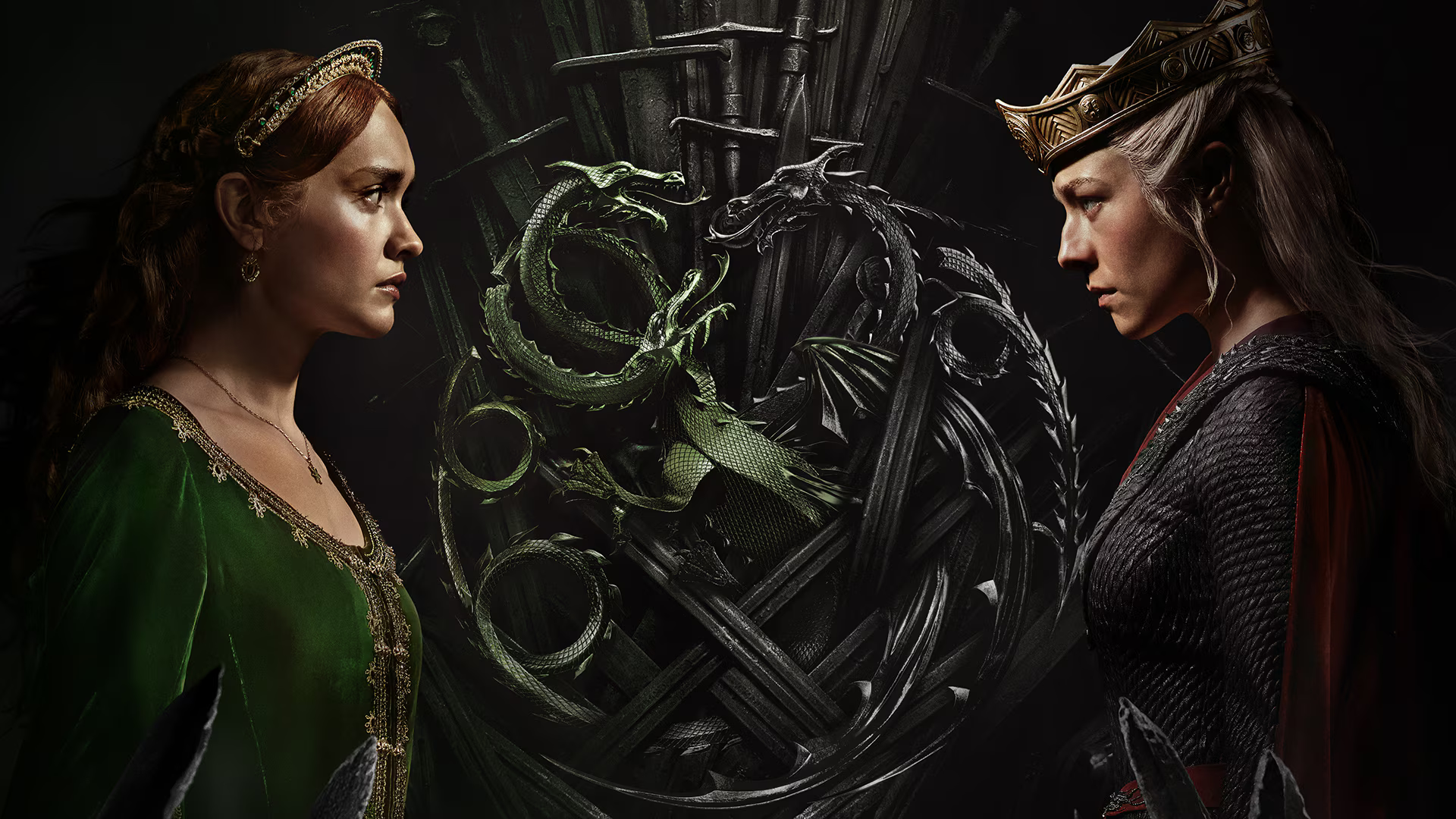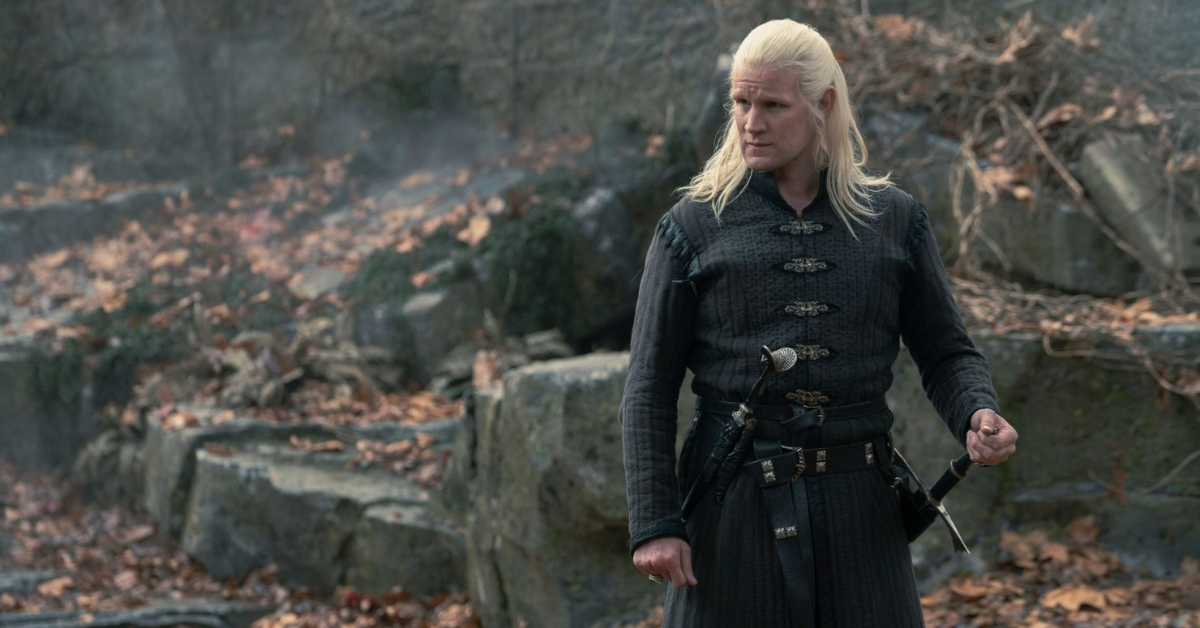Nicholas McCarthy’s At the Devil’s Door is, as its South by Southwest festival premier and IFC pedigree would suggest, the hippest film about Satan you’ll watch this year. Starring Awkward‘s Ashley Rickards, Naya Rivera (yes, Santana from Glee) and Catalina Sandino Moreno, ATDD tells the story of two sisters up against occult powers beyond their comprehension for reasons they must look to the past to unravel.

Okay, so if you’ve seen the film, then you know that the synopsis above (and pretty much any other plot overview you can find online) is horribly oversimplified and only covers about a third of the film because the actual plot is a bit of a roller coaster. Let’s try this again: so there’s this girl in the 80’s who loves to draw and falls in love with a boy who convinces her to sell her soul for $500 because she doesn’t believe the devil will ever come a-callin’ to collect his due. Flash forward to now, when real estate agent Leigh (Moreno) runs into this girl while walking through a home she’s about to put on the market for some folks who are down on their luck. Also, she can’t have kids. Also, she has an artsy sister named Vera (Rivera) who doesn’t want kids. Also, the people who previously owned the house have a daughter who has been missing for a while who “ran off with a boy” and has also been sort of troubled. The real estate agent figures it’s their daughter hiding out in the old house. Just kidding. They just found their daughter. This is some unrelated dead girl. OR MAYBE THEY’RE NOT UNRELATED AT ALL. The connection? Satan is looking for a baby mama.
You get it: this plot is kind of convoluted. You watch the movie from three perspectives, which is a bit jarring based on the setup. Once you get past that, however, this isn’t actually a terrible movie. It’s well-shot, subtle, and unpredictable in both good and bad ways. McCarthy opts to create an overall atmosphere of dread and focus on tension-building as opposed to relying on cheap jump scares, reminiscent of films such as Insidious or Let the Right One In. This film has obvious shortcomings (it’s convoluted and hard to follow, the pace drags, some of the acting is clunky) but the things it does well, it does very well.
This film’s plot has a lot of retreaded ground (see: Rosemary’s Baby, American Horror Story: Murder House, The House of the Devil, Beyond the Door, Hell Baby… You get the picture). What’s weird though, is that for a film about the conception and birth of the Antichrist, Devil’s Door is neither particularly bodily horrific nor rapey in the way of its many predecessors. Once El Diablo/the demon/His Unholiness/the Prince of Darkness finally “gets” Vera (and in the beginning with Hannah, though we don’t know what’s happening at the time) it’s gruesomely violent, but completely nonsexual. Vera spends the duration of her pregnancy in a coma to prevent Vera from terminating either the baby’s life or her own, so we really don’t see many gross-out belly moments typical of pregnancy body horror.

For a film about the return of the Lord of Darkness himself, this film is weirdly secular. They never say the word “devil” or the name “Satan” or anything of the sort. Aside from the repeated Revelations 13 verse at both the beginning and end of this film, there are no other religious references, no churches or religious figures, and it’s not really implied that any of the families or women affected are particularly religious. Hannah is a virgin, but we learn later that that fact has nothing to do with her faith or fate (Vera is later chosen for the same purposes, and is previously shown as having a sexual relationship with a man describable only as bread dough incarnate) and only serves to confirm suspicions that her pregnancy was supernatural. This film isn’t really about religion, although the reason the events are ever set into motion is because Hannah is a non-believer. It is not Hannah’s sexual transgressions or lack thereof that invoke the Beast’s wrath; it’s her arrogance. She isn’t punished for being a woman (although that part is a bit necessary) or for having sex. She’s punished for being a dumb kid playing with shit she doesn’t understand.
 What is most striking about this film, and what many others of its kind lack, is how many of the characters are women. For obvious reasons, several of the main characters kind of have to be women (Hollywood doesn’t really mess around with the whole cis vs. trans thing yet, and yes I minored in Social Justice, The Internet, so don’t call me on that crap). But what is cool is how many of the other characters are also women. In fact, all the men in this film are either evil (the boyfriend, the uncle, “He,” a.k.a. Literal Beelzebub) or just kind of happenstance (Human Bread Dough, the father selling the house). The Antichrist is a little girl; the best friend who knows the truth is a suburban mom; the poor schmuck fostering the Demon Seed is just some lady in an apartment. Nearly every important character in this film is female, which is very cool and unexpected in what many would ordinarily consider to be a bit of a throwaway piece.
What is most striking about this film, and what many others of its kind lack, is how many of the characters are women. For obvious reasons, several of the main characters kind of have to be women (Hollywood doesn’t really mess around with the whole cis vs. trans thing yet, and yes I minored in Social Justice, The Internet, so don’t call me on that crap). But what is cool is how many of the other characters are also women. In fact, all the men in this film are either evil (the boyfriend, the uncle, “He,” a.k.a. Literal Beelzebub) or just kind of happenstance (Human Bread Dough, the father selling the house). The Antichrist is a little girl; the best friend who knows the truth is a suburban mom; the poor schmuck fostering the Demon Seed is just some lady in an apartment. Nearly every important character in this film is female, which is very cool and unexpected in what many would ordinarily consider to be a bit of a throwaway piece.
Devil’s Door is trying to say something about motherhood. I think. It’s a little difficult to sift through the mixed metaphors and perplexing plot line, but there’s definitely something about maternity in there. And also maybe… the recession? And don’t forget, the artsy girls are the ones you have to worry about. Seriously, every girl Luci chooses is kind of artistic and vaguely troubled. Like, no offense but His Unholiness clearly has a type. Anyway.
There is an emphasis on motherhood that’s impossible to miss. Leigh always wanted to be a mother, but is medically unable to conceive. Her sister Vera, however, is dead-set that she does not want children or a family, that it just isn’t who she is. Leigh tries to convince her to change her mind, as both their parents are dead and their family is dwindling, but Vera remains firm in her decision, what with being a famous successful artist and whatnot. But ol’ Mephistopheles has other ideas for Vera’s womb, and Vera doesn’t really get the chance to argue. Living the literal nightmare, Vera wakes up 8 months pregnant, immediately demands a C-section, and puts (totally normal-looking) mini-Satan up for adoption. And then goes to find her 6 years later to finally kill her evil spawn and finish what she started, saving the whole world in the process… But then changes her mind and kidnaps her instead. Is this implying that the bond motherhood is somehow stronger than the power of an evil hell-bent (I’m not even sorry) on the destruction of the world as we know it? Are you obligated to love your unwanted child even if it is literal actual devil spawn?
This film is saying something about maternity. Loudly. And in tongues. I don’t know if I would have been happier if Vera had actually gone through with killing her six year old daughter. I’m not entirely sure what I expected. It’s kind of a fitting end to a jumbled and rambling story. It feels like the writer ran out of energy around the same time as I did watching the film. The audience is left with a lot of questions, such as “Wait… what?” But ultimately, it’s nowhere near the worst film in its genre. If demon impregnation is your bag, definitely give this film a look. And please, for the love of all that is unholy, let us know your theories on the message.

- Lady Rating – 7/107/10
The Frightful Femme – At the Devil’s Door
Read: THIS IS NOT A GREAT FILM. These ratings are strictly for the purposes of women’s representation, not of the film as a whole. But for a movie about terror pregnancy, it is… infinitely better with women than it really has a right to be. I chose this film on a whim, but after the fact I read several reviews complaining about this film’s lack of important male roles, which is kind of a win in my eyes. Two of our three lady protagonists die, but—wait, did you say THREE lady protagonists? And none of them are even awful or sex objects? And a bunch of the other characters are women too? Huh. Good job, dude director. Good job.
Kirsten writes like she’s seen one too many Joss Whedon productions… Probably because she has.




Leave a Reply